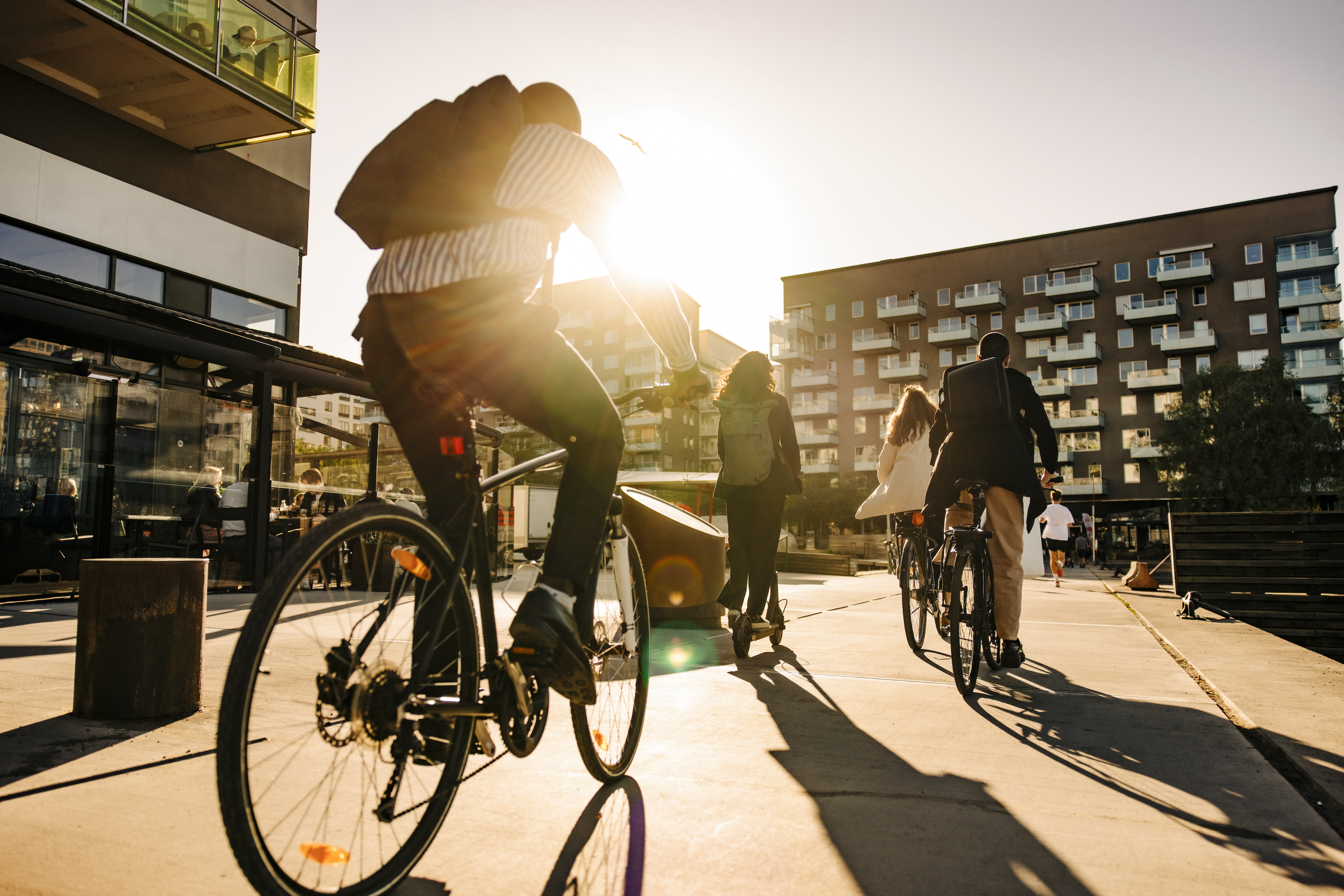Two million priced out of riding a bike, and unable to use Cycle to Work, says Sustrans
The charity proposes a voucher scheme for those on low incomes and out of employment


Up to two million people are being priced out of riding a bike, new research from Sustrans has found.
Many of those in low-income employment or out of work would like to ride, the sustainable transport charity found – but are prevented by financial restrictions.
It has come up with three proposals for the government to consider, including a voucher scheme designed to be "fully inclusive".
Chris Boardman, who is currently the national active travel commissioner, said the proposed scheme was "a great way to increase travel choice equitably and fairly".
Even Cycle to Work schemes tend not to work for those earning less than £17,000 per year, as the salary sacrifice means they dip below minimum wage.
Only 30% of people in low income jobs or unemployment have access to a bike, was another finding of the new Sustrans report, called 'The Cycling Opportunity'. That's around half the number of those in the highest group of earners.
But 55% of people in low income jobs or not in employment felt that access to a bike would save them money, while 79% thought it could improve their physical and mental health.
Get The Leadout Newsletter
The latest race content, interviews, features, reviews and expert buying guides, direct to your inbox!
The report was based on more than 2,000 people who responded to an independent survey, plus a focus group of 66 people.
The three proposals put forward by Sustrans included a voucher scheme, accessible to those on low and no incomes that gave buyers 40% off a new bike. The £18 million annual cost would yield £60 million in societal benefits, it said. These would include lowering NHS costs and saving 13,000 sick days.
The second proposal is to ensure the scheme was fully accessible by its intended users. With around 40% of those in low income jobs or unemployed having a long-term health condition or disability, some would need more expensive specialised machines that would need to be discounted further.
Third and last, according to Sustrans, governments across the UK should continue to address other barriers to cycling, including providing better parking, improved cycling infrastructure, and to ensure that cycling policy is informed by those on low incomes and unemployment.
Separately, but on the same topic, the Cycle To Work Alliance met with MPs and active travel policy makers last week with a view to fleshing out ideas on improving access to cycle commuting.
On the back of the meeting the Alliance plans to refine its manifesto paper, which it says has been created in partnership with the cycling industry, employers and think tanks, and builds on insight into consumer trends.
The Alliance will present the paper at a parliamentary reception later this year, marking 25 years of Cycle To Work schemes.
The schemes came under fire earlier this year from one retailer, who accused them of "sucking the lifeblood" out of bike shops.

Thank you for reading 20 articles this month* Join now for unlimited access
Enjoy your first month for just £1 / $1 / €1
*Read 5 free articles per month without a subscription

Join now for unlimited access
Try first month for just £1 / $1 / €1
After cutting his teeth on local and national newspapers, James began at Cycling Weekly as a sub-editor in 2000 when the current office was literally all fields.
Eventually becoming chief sub-editor, in 2016 he switched to the job of full-time writer, and covers news, racing and features.
A lifelong cyclist and cycling fan, James's racing days (and most of his fitness) are now behind him. But he still rides regularly, both on the road and on the gravelly stuff.
-
 'It can really push me along' - How a velodrome comeback is making Caleb Ewan faster on the road
'It can really push me along' - How a velodrome comeback is making Caleb Ewan faster on the roadAustralian says he'll "definitely" continue track work after rekindling passion
By Tom Davidson
-
 'I've worked a lot on my sprint' - Kristen Faulkner plots unpredictability on racing return
'I've worked a lot on my sprint' - Kristen Faulkner plots unpredictability on racing returnOlympic champion looking forward to "exciting challenge" of continuing to outfox bunch
By Tom Davidson